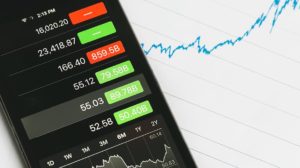European stocks remained under pressure on Monday following a lackluster ton set last week. The dampened sentiments follow U.S stocks edging lower to close on the red as Investors reacted to plans for a new $1.9 trillion stimulus package by the new administration. However, it is weak earnings data by major U.S banks that appear to have fuelled fear in the equity market, conversely fuelling the sell-off.
Stocks Sell-Off
The European Stoxx 600, an important gauge of the European equity market, remained flat as utilities fell by 1.1%. Sentiments in the European stock market have edged lower in recent weeks amid growing concerns about the second wave of coronavirus infections. Countries’ imposing tough lockdown restrictions continues to fuel concerns over its potential impact on the already struggling economy.
In contrast, the Chinese economy appears to have recovered fully from the pandemic, as depicted by the economy posting a 2.3% growth in 2020. The stronger than expected performance helped lift sentiments in the Hong Kong stock exchange, with the Hang Seng gaining 0.5%. The Shanghai Composite Exchange also climbed 0.7%.
However, gloom continued to grip other stock markets in the region. Tokyo’s Nikkei fell by as much as 0.9%, as South Korea’s Kospi fell by 1.6%.
China experienced its strongest growth in the three months ending December as the economy expanded by 6.5%, up from a 4.9% growth registered in the third quarter.
Emerging Markets Struggles
Even as the Chinese economy continues to recover from the shackles of COVID-19, things appear to be turning for the worst in other emerging markets. With the dollar bouncing off two-year lows, emerging market currencies remain under pressure in the currency market.
The greenback has been in a recovery mode in the last two weeks. Its sentiments in the forex market buoyed by the President-elect proposal of a $1.9 trillion stimulus, highly needed to revitalize the U.S economy. If history is anything to go by, emerging currencies could be in trouble as more gains are expected in the dollar.









